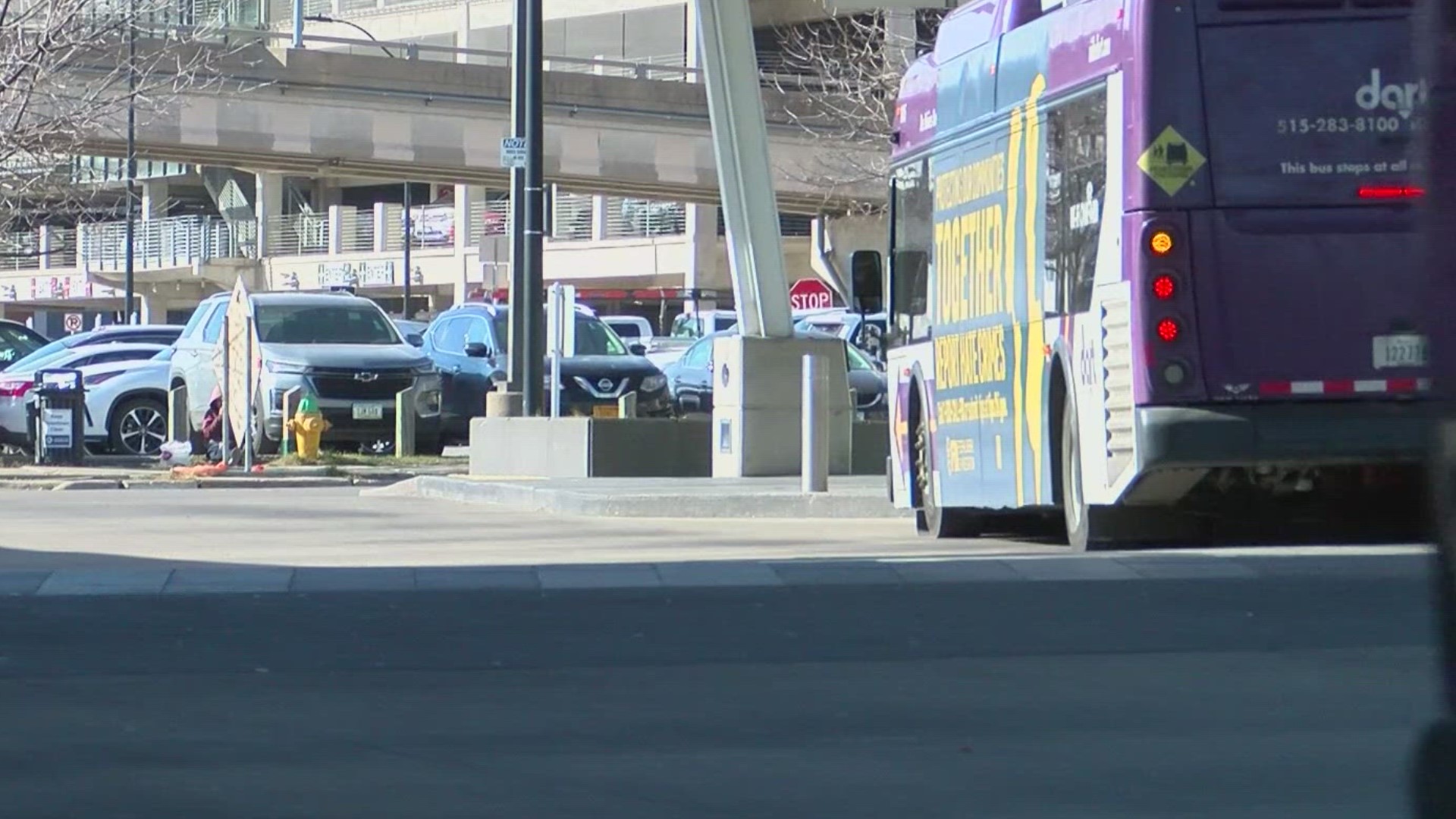DES MOINES, Iowa — The Des Moines Area Regional Transit Authority, or DART, is considering a plan to cut down their bus services in Des Moines by 40% by 2025.
DART has been struggling for months to find other new funding sources to address a $2.7 million shortfall, despite being the only mode of public transportation in Iowa's capital city. That number could grow to $7.7 million, according to DART, without more public funding.
The City of Des Moines is already contributing the maximum amount to transit service that they can through property taxes. Other cities that DART serves, however, will increase their property taxes for some time to help with funding.
On an average weekday, DART provides 12,000 rides all over town, according to Chief External Affairs Officer Erin Hockman.
"The majority of the individuals using DART are either living in Des Moines or they're working in Des Moines," Hockman said. "61% of riders either don't have access to a vehicle or don't have a working driver's license."
With the service reductions, waiting times on popular routes would increase, meaning that riders may have to wait anywhere from 30 to 50 minutes for their bus. Many routes would also run only on weekdays.
DART recognizes the impact the cuts could have on riders, but believes they have exhausted all other options to get the funding that they need,
"A potential 40% reduction in bus service is certainly scary to those individuals who rely on DART to get where they need to go," Hockman said.
Human services agencies in the metro are starting to worry about what the cuts could mean for those they serve.
Lutheran Services of Iowa serves nearly 3,000 immigrants and refugees every year, most of whom live in Des Moines. Almost all of them use the bus system when they first arrive.
"The impact could be profound for our clients," LSI Refugee Education Coordinator Sara Hilgenberg said. "It would present a greater barrier for our clients to access the workforce."
With fewer bus routes and longer wait times, Hilgenberg says that children who ride the DART bus to and from school could also be impacted since the morning route times are already tight.
LSI offers community integration classes to their clients when they first arrive in the U.S. Instruction on how to use public transportation is a major part of the course.
Beginning Wednesday, DART will hold a public input process, which will allow riders to share what routes they rely on. Riders can complete an online survey, fill out a survey at the DART Central Station, or attend a public meeting in the upcoming weeks.

